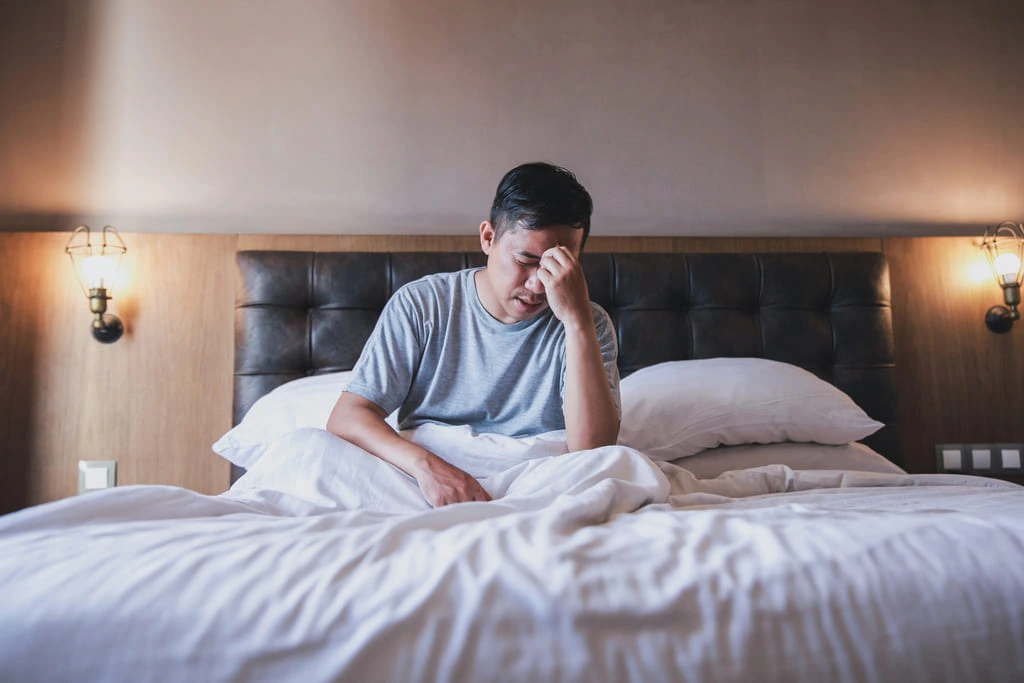What Is a Frontal Lobe Seizure?
A frontal lobe seizure is considered a partial seizure because it occurs in a specific area of the brain, i.e. the frontal lobe. The brain activity in this area is responsible for producing speech, understanding language, forming memories, and more. Therefore, frontal lobe epilepsy may significantly impact a person’s cognitive abilities and quality of life.
Frontal lobe seizures can cause changes in the person’s behaviour and everyday routine. For example, individuals with frontal lobe epilepsy may have sleep disturbances and personality changes. Consequently, this challenge can often be misdiagnosed as a sleep disorder or a mental health challenge.
What Is Nocturnal Frontal Lobe Epilepsy?
Nocturnal frontal lobe epilepsy is a rare type of epilepsy that typically runs in the family. This challenge leads to nocturnal seizures, i.e. seizures that occur while the affected person is asleep at night. Nevertheless, some individuals with nocturnal frontal lobe epilepsy can also experience seizures during the day.
Nocturnal seizures may vary in their severity. Some people’s seizures are mild and only interrupt their sleep. Others experience severe episodes that might include abrupt, repetitive movements like throwing or flinging movement of the arms or bicycling motion of the legs.
The person may make sounds like crying, gasping, moaning, or grunting. Some individuals can also get out of bed and wander around the house. These symptoms may be mistaken for sleepwalking, night terrors, or panic attacks.
Who Can Get Frontal Lobe Seizures?
You can start experiencing frontal lobe seizures at any age. In most cases, these seizures start in childhood. Several medical challenges increase the risk of frontal lobe seizures, including stroke, tumours, infections, and traumatic brain injury.
How Common Is Frontal Lobe Epilepsy?
Epilepsy is a relatively common neurological challenge that affects around 50 million people worldwide. Frontal lobe seizures account for around 20-30% of all focal epilepsy cases. This challenge usually runs in families, and children can inherit it from their parents.
What Causes Frontal Lobe Epilepsy?
Most frontal lobe seizures are caused by developmental differences in this part of the brain. For instance, some people experience seizures due to the development of the brain cells in the fetal stage. Other challenges that may lead to focal seizures include the following:

- Abnormal brain growths (lesions) or tumours
- Acquired brain injury
- Stroke
- Brain infections
One specific type of nocturnal frontal lobe seizure occurs due to changes in one or multiple genes, which means parents can pass it on to their offspring. This form of epilepsy is known as autosomal dominant nocturnal frontal lobe epilepsy and is very uncommon.
Symptoms of Frontal Lobe Epilepsy
Frontal lobe seizures are typically short and last for 30 seconds, but some may occur in clusters. The person may have impaired awareness or even lose consciousness.
Some individuals experience an aura stage which entails warning symptoms before the seizure. In this stage, you may experience the following:
- Dizziness
- Lack of balance
- Numbness
- Hallucinations
- Strong sense of panic
Common symptoms of a frontal lobe seizure include the following:
- Behaviours of distress, such as moaning, screaming, swearing, or laughing
- Unusual limb movements (kicking, pedalling, jerking, twitching)
- Repetitive movements
- Sleepwalking
- Head and eye movements directed to one side
- Urinary incontinence
Complications of Frontal Lobe Seizures
Most seizures associated with frontal areas of the brain don’t lead to serious health complications. However, some people may experience the following complications:
Status epilepticus – seizures lasting more than five minutes with a prolonged loss of consciousness are a medical emergency and might put the person at risk of severe disability
Mechanical trauma – people with epilepsy might get various kinds of injuries during a seizure, such as head trauma, dental injuries, bruises, cuts, or bone fractures
Mental health challenges – due to the distress related to frontal lobe seizures, many people with this condition develop depression or anxiety
Sudden unexplained death in epilepsy (SUDEP) – around one in 1,000 adults with epilepsy die unexpectedly and for no clear reason
Frontal Lobe Epilepsy Diagnosis
In order to receive a frontal lobe epilepsy diagnosis, you should consult your GP. The GP may provide a physical and neurological exam.
Your GP may refer you to a specialist who will perform an MRI scan to get a detailed image of the soft tissues in your brain. An MRI can identify lesions, tumours, or other issues that might cause your seizures.
A specialist may also perform electroencephalography (EEG) to track the electrical activity in your brain. Furthermore, a video EEG can record the person’s brain activity alongside their behaviour and movements. Since most frontal lobe seizures occur while the person is asleep, you may have to stay in the hospital overnight for monitoring and a sleep study.
Treatment Options
Medical experts mainly treat frontal lobe epilepsy with anti-epileptic medications. These medications control the activity between the person’s brain cells and reduce the frequency of their seizures.
Other treatment options for individuals with epilepsy include the following:
- Neuromodulation (vagus nerve stimulation, responsive neurostimulation, deep brain stimulation)
- Avoiding possible triggers
- Lifestyle changes
- Dietary changes
- Brain surgery
How to Prevent Seizures While Sleeping
There is no effective way of preventing frontal lobe epilepsy in itself. However, you can take several steps to control and reduce the frequency of your seizures by:
- Removing potential seizure triggers, such as stress, drug and alcohol abuse, flashing lights, or insufficient sleep
- Maintaining a healthy diet
- Taking your prescribed anti-epileptic medication as recommended

Furthermore, having a waking night care expert by your side can prevent injuries and other unwanted incidents. Leaf Complex Care offers high-standard waking night care for individuals with frontal lobe seizures.
Support for Frontal Lobe Epilepsy with Leaf Complex Care
At Leaf Complex Care, we support children and adults with complex care needs, including frontal lobe seizures. Our trained support workers offer several services to individuals with partial seizures, such as personal care, medication management, and waking night care.
The Leaf team delivers expert care for individuals in their own homes. This way, the people we serve stay close to their loved ones and actively participate in their local community. We take a humanised approach to supporting people with epilepsy and prioritise their privacy, dignity, and personal boundaries.
If you or your loved one has a medical challenge related to frontal lobe seizures, Leaf Complex Care is the right place for you. We offer high-standard, CQC-regulated home care services to individuals with complex care needs in Bristol, Slough, Somerset and the Midlands.
Contact us now, and we will outline a tailored care plan catering to your needs.

















